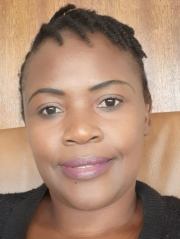 Organization: Lusaka City Council, Zambia
Organization: Lusaka City Council, Zambia
Name: Ms. SOKO Joan Lubinda
Position: Public Health Department, Environmental Health Officer/Public Health Inspector
Name of Program:Solid Waste Management towards Recycle Oriented Society (Emphasis on Partnership between Public Entities and
Citizens) (A)
Duraion: Feb. 12 ~ Aug. 31, 2021
My name is Joan Soko, am an Environmental Health Officer/Public Health Inspector from Lusaka, Zambia. Since 2012, I’ve been working under the Waste Management Unit of the Public Health Department, Lusaka City Council-Zambia. I came to know about the training that JICA is offering under the Knowledge Co-Creation Program (KCCP) through my superior in December 2020. I immediately applied for the program on Solid Waste Management towards Recycle Oriented Society (Emphasis on Partnership between Public Entities and Citizens). I felt honored when I was accepted to participate in the training which came at the right time when the Local Authority is already on the ground, conducting sensitization programs on the importance of waste segregation and recycling. The training is very timely as it will help me and my organization have deep understanding on how Japan managed to sort out the challenges related to Solid Waste and emulate the lessons learnt.
My KCCP journey started in February, 2021 on long distance basis. The program organizer, sends materials to be studied via the designated online application, in form of videos which are also made available in PDF format. The participant is expected to study the material within a specified period, of about a month and submit a monitoring tool which comes as a questionnaire. If a participant has any questions on a particular topic presented, they are free to ask them on the space provided on the questionnaire.
The tutor of this program is Mr. Ogawa, the CEO of LEAF (Learning and Ecological Activities Foundation for children) a non-profit organization which works mainly with children in elementary schools and junior high secondary on proper environmental management and we see that Solid Waste is an environmental issue which needs to be properly managed. I have learnt that Japan ensured that the topics to do with Solid Waste Management were included in the school curriculum of children in the fourth grade and culturally children are taught to manage their waste from a very young age by their parents before they even start going to school.
My distance learning experience has been very interesting because I am now able to compare what I’ve learnt with what is actually happening on the ground in my city and possible ways to improve. I’ve learnt about the sustainable planned processes and systems that Japan had to put in place for some years in order for them to reach where they are today, as one of the cleanest developed countries. I’ve also learnt that in order to overcome Solid Waste Management Challenges, there should be deliberate concerted efforts by the Government, Businesses and the Citizens.
To everyone who might want to expand their knowledge in their area of expertise so as to enhance their service delivery in their countries, look out for long distance trainings that JICA is offering under the Knowledge Co-Creation Program.
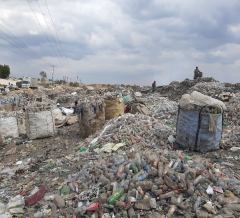
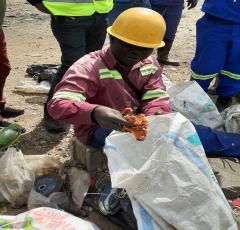
Field experience images
Pet bottles and scrap metal being collected at dumpsite
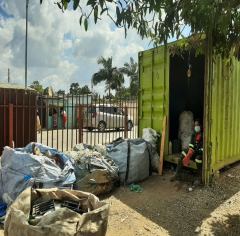
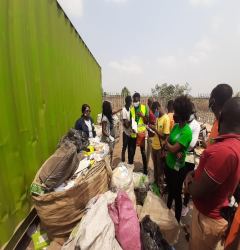
Recyclable aggregations points in the communities
(Manja Pamodzi project)